🎗️Lonny's War Update- October 649, 2023 - July 16, 2025 🎗️
🎗️Day 649 that 50 of our hostages are still in Hamas captivity🎗️
- Families of Israeli captives reach out to Hamas over fate of ceasefire talks
Senior Hamas official tells a representative for some of the families that it is 'serious' about reaching ceasefire deal but facing 'intransigent Israeli positions'The families of Israeli captives held in Gaza reached out to Hamas through a representative to ask about the fate of stalled ceasefire talks, Middle East Eye can reveal.
Sources told MEE that the third party reached out to Hamas after the captives' families feared Israeli Prime Minister Benjamin was trying to torpedo a possible deal.
A senior figure within Hamas told the representative to relay to the families that it was "serious" about reaching an agreement to end the war and release the captives, but that it was facing "intransigent Israeli positions", sources told MEE.
"Hamas is serious about reaching an agreement to end the war and establish arrangements that ensure calm and stability. It has demonstrated significant flexibility and positive responsibility during the negotiation rounds," the sources quoted Hamas as saying.
"Israel has insisted on continuing the war, destroying the Gaza Strip, displacing its population, and imposing a state of hunger, suffering, and ongoing massacres that have not ceased for a single day."
Hamas and Israel reached a brief three-stage ceasefire in January, but the deal collapsed in March after Israel took back several of its captives and resumed bombing Gaza, walking away from the deal before talks with Hamas on a permanent end to the war could start.Since then, the Trump administration has given Israel full backing to wage war on Gaza.
According to sources, the Hamas official told the representative that the Palestinian movement had complied with "everything stipulated" in the first phase of the previous ceasefire, which was supposed to transition to phase two talks on ending the war.
Before withdrawing from the ceasefire, Hamas said that Israel committed "hundreds of violations", including deploying troops beyond "buffer zones", killing 132 civilians, preventing the inflow of reconstruction material, and remaining in the Philadelphia Corridor that separates Gaza from Egypt.
Hamas reportedly told the representative that despite Israel unilaterally resuming the war, it responded to proposals by mediators to revive the ceasefire, “but Israel rejected them and insisted on releasing half of the Israeli prisoners without offering any guarantees that the war would cease. In fact, it openly insisted on its continuation”.
As it stands, there are believed to be around 20 living captives in Gaza and just over 30 dead Israelis. Since the 7 October 2023 attacks on southern Israel, the country's military has only rescued eight captives in raids that have seen hundreds of Palestinians killed.
In their conversation, Hamas also told the representative to relay to the captives' families that Israel had "without any justification, returned to war in a shocking, more brutal, and more destructive manner than before, committing massacres on a daily basis."
According to sources, the Hamas official told the representative that despite the mounting civilian death toll it had "no problem" with resuming negotiations and had "responded to several proposals presented by mediators, but Israel rejected them and insisted on releasing half of the Israeli prisoners without offering any guarantees that the war would cease."
The official also reportedly told the representative that despite the daily massacres, where on average 100 Palestinians are killed every 24 hours, it had "no problem" with resuming negotiations and "responded to several proposals presented by mediators, but Israel rejected them and insisted on releasing half of the Israeli prisoners without offering any guarantees that the war would cease."
The group also maintained that it responded positively to US Special Envoy to the Middle East Steve Witkoff's ceasefire proposal "in order to reach an agreement" but Netanyahu was taking "a hardline stance," and seeking to control large swathes of the strip and displace more than 600,000 Palestinians.
The sources said that the Hamas official reiterated that Netanyahu was to blame for the captives' plight after he "rejected" the group's offer to release "all Israeli prisoners at once in exchange for ending the war."
The sources said that Hamas also told the representatives that it was ready to transfer power after the war ends to an "independent, professional committee to govern Gaza with full powers," and that the group would not play any role in running the enclave.
Talks remain deadlocked
On Sunday, US President Donald Trump said talks on a Gaza ceasefire were going along well, repeating remarks he made a week earlier when Netanyahu visited Washington.
In contrast, MEE reported on Saturday that Hamas negotiators were sceptical that a ceasefire agreement could be reached in the current round of talks in Doha, Qatar.
Sources close to Palestinian negotiators said talks have remained deadlocked over at least two of four key issues.
The first is the extent of the proposed Israeli withdrawal from the Gaza Strip during a 60-day truce. The second is the method of aid distribution.
The US has reportedly proposed postponing discussions on these two points, instead focusing on the names of Palestinian prisoners to be released by Israel in exchange for the remaining Israeli captives.
According to the sources, Hamas told the representative for the captives’ families that it asked to amend three points related to the distribution of aid, the deployment of Israeli soldiers in Gaza and guarantees on ending the war after an initial 60-day truce is over.
“However, Israel has taken a hardline stance, particularly in its redeployment maps, where it seeks to control approximately 36 percent of the Gaza Strip's area and keep approximately 600,000 residents displaced and unable to return to their homes," Hamas is reported to have said.
"Israel has repeatedly rejected our offer to return all Israeli prisoners at once in exchange for ending the war.
"They rejected it and preferred a partial solution. This is a clear indication of their intention to continue the war and their disregard for prisoners as a central issue for Israeli society," it added.
For more than 21 months, Israel has relentlessly bombed the besieged Gaza Strip, displacing the entire 2.3 million population multiple times, and has killed more than 58,000 Palestinians, mostly civilians.
The figure also includes at least 1,400 health sector professionals, 280 United Nations aid workers - the highest staff death toll in UN history - and at least 228 journalists, with the highest number of media workers killed in conflict since the Committee to Protect Journalists began recording data in 1992. link. A few points about this article. Firstly, Hamas doesn't give a damn about how many Gazans are killed daily or the circumstances of their deaths. They are also involved in the killing of their own people. The only thing they care about is the numbers and the higher they are, the better for their PR position in the world. On the other hand, Israel is directly responsible for most of the daily deaths and most of them are not Hamas terrorists but non combatants.There have been numerous reports of returning IDF soldiers who have told of being ordered to shoot at Palestinians going to the humanitarian aid distribution sites, not being a threat to the soldiers or to anyone else. If these reports are true, and I believe them to be so, these are truly war crimes and should be investigated and prosecuted immediately.
Hamas is not an organization of angels. On the contrary, they are the devils in disguise and have no place breathing the same air as we do. However, we need them to get our hostages home. In their statements for this article, they sound like honest brokers and ready to end the war and release all the hostages. They are not honest brokers but they desperately want to end the war and that means to release all the hostages. They, of course have their demands and they are not as flexible as they try to make themselves out to be, but they have never been flexible with their bottom line and the decisions makers in Israel know that very well. It would be wonderful if we were in the position to wait them out and do what we can to destroy them in the meantime, but there are several major problems with that scenario. They hold all the aces. They have 50 of our hostages who must be brought home and should have been brought home a long time ago. They would have been brought home if not for Netanyahu's insistence on keeping the war going for his political interests and survival. The other major issue is that this war is not a guerilla war and our soldiers are being killed and maimed every single day. The military presence is almost useless at this point in time and the next steps must be diplomatic and political, not military and our hostages must come home and our soldiers relieved of battle. Just about all of the Hamas statements about Netanyahu preventing the end of the war and scuttling every single negotiation is too true and is damaging to all of us. Hamas official denies progress in Gaza ceasefire talks
A senior Hamas official rejects claims of progress in Gaza ceasefire talks, adding that the Palestinian terror group has not received maps planning for Israeli withdrawal from the Strip.
“(Israel) has not yet delivered any new or revised maps regarding military withdrawals from the Gaza Strip,” Bassem Naim, a member of Hamas political bureau, tells AFP, accusing Israel of wanting to “prolong military control” in Gaza for the long term.
**There is nothing more important than getting them home! NOTHING!**
“I’ve never met them,But I miss them. I’ve never met them,but I think of them every second. I’ve never met them,but they are my family. BRING THEM HOME NOW!!!”
There is no victory until all of the hostages are home!אין נצחון עד שכל החטופים בבית
Red Alerts - Missile, Rocket, Drone (UAV - unmanned aerial vehicles), and Terror Attacks and Death Announcements
*
Father of slain captive: Senior official told me he can ‘also deal with 200 more bereaved families’
Rabbi Elhanan Danino, the father of hostage Ori Danino, who was murdered in captivity, reveals that a “senior official” told him that he “could also deal with another 200 bereaved families.”
Speaking to the Kan public broadcaster, Danino talks about the callousness of Israel’s political leadership, saying that when he spoke to military and security officials who were trying to secure the release of the hostages, the conversations were “straight and pure.”
However, “when it reaches the cabinet, and then the aquarium, it gradually fades away,” he says, referring to Prime Minister Benjamin Netanyahu’s inner sanctum.
Danino says one of the worst things he heard was when “a senior official,” an apparent reference to Netanyahu, told him that he “could also deal with another 200 bereaved families.”
His son, Master Sgt. Ori Danino, an off-duty soldier with the Paratroopers’ Brigade, was captured from the Supernova music festival after he went back to try to save his friends. Danino was then held hostage for 11 months before he was executed by Hamas. His body was recovered by troops on August 31 from a tunnel in southern Gaza’s Rafah along with those of Eden Yerushalmi, Carmel Gat, Hersh Goldberg-Polin, Alex Lobanov, and Almog Sarusi. link There should not be any surprise with this horrific revelation about Netanyahu saying he can 'deal with another 200 bereaved families'. Of course he can. He doesn't give a damn about the soldiers or the hostages who are killed or about the families whose lives have forever been destroyed. For Netanyahu, their lives are fodder for his War of Political Survival and no price is too high to pay for him to retain his bloody throne. We already have 2000 bereaved families; all those killed on October 7 and all who have lost their lives since in his horrific war of no winners. He has ignored the 2000 bereaved families, so what is another 200 to him. At best, he sheds a crocodile tear or two and says a few polished words that are meant to impress but there is no feeling behind those words because there is no soul or heart from the person uttering them. It took him almost 2 years to go to Kibbutz Nir Oz which is a symbol of the October 7 massacre with 1 of every 4 kibbutz residents either killed or kidnapped and almost every structure of the kibbutz violated, burned, destroyed by the barbaric Hamas terrorists. But he would not go there because it was bad PR for him. Instead, he waited so long to align with the unofficial start of his election campaign for the next elections. His actions, non actions, words and lies are all measured and strategic for his political survival and legacy. Nothing else that he does has any strategy behind it because all decisions are based on what is good for him first.
Adding another 200 bereaved families is nothing to him. As he said just a few weeks ago, that all of us must make personal sacrifices during this war. I am paraphrasing him when he said to look at the sacrifices that his family has made. They had to postpone his son's wedding and that his wife is a true Israeli hero. He equates postponing his son's wedding with bereaved families without blinking. His brother would be disgusted by everything that he says and does.Activists, bereaved parents urge major protest next week calling for end to Gaza war
A panel of bereaved parents, former security personnel, a hostage mother and a soldier mother hold a press conference calling on Israelis to join their call to end the war in Gaza and stage a major protest next week.
Major General (Res.) Noam Tibon, who went to save his son and son’s family on October 7 from Kibbutz Kfar Aza, says that after three more soldiers were killed on Monday, the government continued its politicking in the Knesset.
“The soldiers are being sent to Gaza because of political considerations,” says Tibon. “We’re here to say in a clear voice, we have to finish this war in Gaza and bring back all the hostages in one deal. Soldiers are dealing with a bloody, guerilla war in Gaza. Another soldier committed suicide yesterday. The heart breaks and we have to take care of them. The army is stretched to its limits.”
Tibon calls on Israelis to join the struggle, and a major protest is being planned for Thursday evening, July 24, in Tel Aviv.
His words are echoed by former Beit Shean mayor Rafi Ben Sheetrit, whose son, Alroy Ben Sheetrit, was killed fighting in the battle on Nahal Oz on October 7.
Bat El, the mother of a combat officer who has been fighting in Gaza for nearly two years, speaks emotionally and forcefully about the effects on soldiers as they fight in Israel’s longest war to date.
“They’re being sent again and again to the battlefield, without hope, just seeing the deaths of dozens of comrades,” says Bat El. “They’re dealing with trauma and injuries.”
She says that it is weakening the army to push these soldiers to their limits, and the soldiers don’t know what they are still doing in Gaza.
“They see things that most of the nation has never experienced,” says Bat El. “It falls on too-young shoulders.”
Hostage mother Einav Zangauker, whose son, Matan, is one of the living hostages, calls on Prime Minister Benjamin Netanyahu to fulfill his promise to her to bring back her son, and also calls on Israelis to join the protest.
Bereaved parent Elchanan Danino, whose son, Or Danino, was one of the six hostages killed in Gaza in August 2024, notes that most of the hostages who have been recently released came back because of agreements between Israel and Hamas.
He credits US Mideast envoy Steve Witkoff, whom he calls a fellow bereaved father, with those releases.
“Witkoff knows how many hostages were killed in Gaza under army pressure,” says Danino, opening his jacket to show a photo of his son, Or.
Ceasefire talks are still in ‘first phase,’ but efforts are ‘intensifying,’ says Qatar
Gaza ceasefire talks remain in their “first phase” after more than a week of talks, even as mediators step up efforts to broker a truce between Israel and Hamas, Qatar says.
“Discussions on the framework agreement are still ongoing. Both delegations are present here in Doha, and the mediators are intensifying efforts to reach an agreement,” Qatar’s foreign ministry spokesman Majed Al-Ansari tells reporters.
“The negotiations are still in the first phase, which is specifically about reaching an agreement of principle ahead of negotiations that will begin, God willing, in the next phase,” he says.
“We cannot say whether an agreement will be reached tomorrow or whether the negotiations will collapse tomorrow,” Ansari adds.
The Qatari spokesman insists: “We believe there is no stalemate,” adding that there is no set timeframe in place for the talks. link Very little movement has been made in the talks and this is not by accident. Netanyahu needs to show Trump good faith that he is keeping his word by keeping his negotiating team in Qatar. In the past , Netanyahu would have brought the negotiators back with claims that Hamas is not negotiating in good faith and there is no reason to keep the negotiators there. He can't do that now, but it doesn't matter. He started with a junior team of negotiators who do not have a real mandate to complete a deal. Netanyahu is biding his time as he doesn't want to take the chance the Ben Gvir and Smotrich will leave the government at this time while he is in a coalition crisis with the Haredim. He will do anything to keep his government together and that includes leaving the hostages to continue to suffer and die while he does nothing for them.
The Negotiations for a Deal: What Is in Israel's Updated Maps, and Trump's Important Meeting
The president will meet with the Prime Minister of Qatar, the mediator in the negotiations for a hostage deal and ceasefire in Gaza • Senior Israeli officials: we agreed to further concessions regarding the withdrawal of the IDF • The meeting will also raise the attempt to renew negotiations between the U.S. and Iran on a new nuclear agreement
U.S. President Donald Trump will meet today (Wednesday) for a dinner with the Prime Minister of Qatar, Sheikh Mohammed bin Abdulrahman Al-Thani. In the meeting, Trump will discuss with him the negotiations regarding the hostage deal and ceasefire in Gaza.
Why It Matters
• Qatar is the central mediator between Israel and Hamas for a hostage deal and ceasefire in Gaza. The meeting takes place after a phone call Trump held with the Emir of Qatar, Sheikh Tamim Al-Thani, on Monday.
• Another topic expected to come up in the meeting is the attempts to renew negotiations between the U.S. and Iran in order to reach a new nuclear agreement, according to a source familiar with the details.In the News Spotlight
• The issue of the hostage deal and the ceasefire in Gaza stood at the center of the meetings between President Trump and Prime Minister Benjamin Netanyahu at the White House last week.
• Alongside the meetings between Netanyahu and Trump, a trilateral meeting was held between White House envoy Steve Witkoff, Minister Ron Dermer, and an envoy of the Emir of Qatar.
• The meeting, which was revealed on N12, dealt with the main dispute between Israel and Hamas — the extent of the Israeli withdrawal from the Gaza Strip as part of a ceasefire.The Current Picture
• Senior Israeli officials said that in the past two days, slow progress has been made in the negotiations taking place in Doha between Israeli representatives and Hamas representatives, mediated by Egypt and Qatar.
• Israel agreed in the past 24 hours to further concessions regarding the extent of the IDF's withdrawal from the Gaza Strip, senior Israeli officials told me.• The updated maps formulated in Israel include a further reduction of the Israeli presence in Rafah. A senior Israeli official said that according to the updated maps, IDF forces will remain in the Strip within a width of less than two kilometers north of the Philadelphi Corridor on the Gaza-Egypt border.
• By comparison, Israel’s initial position included IDF presence up to five kilometers north of the Philadelphi Corridor.
• A senior Israeli official said that Israel has shown willingness to go a few more steps forward in order to achieve a deal. “Now it is Hamas’s turn to be flexible and take the negotiations seriously. Nothing will happen if the Americans do not apply strong pressure,” said the senior Israeli official. linkMother of the Hostage Was Diagnosed with PTSD, Like Her Son: "He Has Seizures That Can Lead to Death"
For nearly a year, Galit Kalfon waited and gave the government time to work toward a hostage deal – but now, as her son has been held captive for almost two years and the agreement only drifts further away, she can no longer remain silent. "Segev has post-trauma that can lead to seizures and even to death," she shares. "Two kippa-wearing men are putting sticks in the wheels – why are they being listened to?"
Galit Kalfon, the mother of hostage Segev Kalfon, speaks from a deep pain that no longer knows rest, after nearly a year of silence. "At first I didn’t go public," she says. "Almost the entire first year I was in post-trauma. I’m diagnosed with PTSD. I shut myself off."
"I would hold his hand until it passed." Galit Kalfon with a photo of Shagev (Photo: Hertzel Yosef)
She broke that silence when she realized there was no time – not for her, and not for Segev. "I felt I had missed an opportunity and that I must do something that Segev would also see. I didn’t want to expose his mental state, but I have no choice." Since he was abducted, Galit has been trying to understand how Segev, a child who already carried deep trauma beforehand, could survive this hell. "Segev was in a serious accident a few years ago. A metal plate in his leg, pain. But the hardest part is the PTSD. He was taking medication. I spoke with Ohad Ben Ami, who was with him, and he told me that he wasn’t getting his medication. That he disconnects from reality. It’s dangerous."
According to a neurological assessment the family received, Shegev is in life-threatening danger. "This is advanced-stage PTSD that can lead to seizures and even to death, God forbid," she says. "And since then, we haven’t known peace."
Galit doesn’t mince words when she talks about those she believes are intentionally blocking the return of the hostages. "There are two people there with kippas who are putting sticks in the wheels, and I don’t understand why they’re being listened to. Even if the government falls, there will be someone to support it. Soldiers are dying every day – it seems like we’ve gotten used to it. Like it’s become part of the routine. It’s not okay."
She speaks of Segev as a child who could collapse at any moment. "When he’s having a seizure, he’s not aware of himself. He begs for air, to return to reality. It goes on for a long time. I remember times it happened here – I would drop everything, rush home, and hold his hand until it passed. It’s a nightmare. But I don’t see that anyone thinks it’s urgent. They talk about it like there’s time. But who has time? If their son were there, they’d get him out that very moment."
Shagev Kalfon, hostage in Gaza (Photo: Courtesy of the family)
The feeling of abandonment never stops gnawing at her. "We were devastated when he wasn’t included in the humanitarian deal. I was sure he’d be among the first. And then I hoped again. But each time I crash. I’ve lost my optimism," Galit says, and paints a grim picture of the conditions in captivity: chronic coughing, choking, sleeping on a thin mattress, lack of basic food, bathing in a basin, leftovers from the captors, sharing grains of rice, relieving themselves in a pit they dig next to where they eat and sleep, contagious diseases. "Animals have better conditions," she says.
As for the negotiations for a deal, she has no more expectations. "Letting Hamas decide who gets out is shirking responsibility. That’s not policy, it’s cruelty. It’s abuse. All the officials in the government, including former senior figures, say we’ll know how to deal with it. So why isn’t the deal moving forward?" she asks in frustration.
"I come to the Knesset and some of the MKs don’t know I’m the mother of a hostage. They don’t know Segev. They go home to their children and everything’s fine for them, so they forget. I will give my whole life for the return of Segev. There’s no first and last here. Everyone needs to come back. Both the living and the fallen. This war can’t go on forever. And the people – this people won’t forgive." link Galit Kalfon is right on target. The government and the Knesset members, in particular those in the coalition live in a different world, a different galaxy where their life is perfectly normal. There are no hostages, no war, no soldiers being killed and maimed daily, no hostage families begging them to do something to bring their loved ones home. For them, October 7 was a bad day but one that is past and now part of history. They take no responsibility because they don't think they need to. After all, nothing happened to them. And why should they take any responsibility when their leader claims all along that he didn't know anything because the security organizations didn't tell him? It is all their fault. The political echelon, especially the prime minister bears no responsibility or culpability. What does it matter that he has been the Prime Minister for the better part of the last 15 years? He's not responsible for any disaster that falls on the country and kills 1200 people with another 151 taken hostage. It's the army, the Shin Bet, the Mossad that failed him and the country. It's all their fault.
So, it's no wonder that the members of Knesset won't give the hostage families the time of day or that the Prime Minister refuses to talk to them. They are just a pain and a bother and as one of Netanyahu's cronies put it, they are all part of the hostage cult that should just go away.
This is the epitome of a failed government and a failed leader who have jointly abandoned the entire country for their own self interests.
- This is how Iran penetrated Israel's air defenses during the war
Through trial and error, and by launching more advanced missiles from various locations deep inside Iran, according to the Wall Street Journal; in the first six days of the war, only 8% of the missiles penetrated air defenses, compared to 16% in the second half of the war; fragments of hypersonic missiles fell in two locations in Israel
Iran succeeded in improving its performance and penetrating Israeli air defenses during the recent "12-Day War" by adjusting its missile launch tactics and identifying weaknesses through "trial and error," The Wall Street Journal reported Wednesday, citing missile defense analysts who reviewed missile debris and open-source data. According to experts, Tehran began launching more advanced, longer-range missiles from a "wider range of locations deep inside Iran." The regime managed to better time their attacks and spread out targets across Israel—despite the fact that most of the missiles and drones were intercepted. "As the war went on, Iran fired fewer missiles, but its success rate rose," the report noted, based on data analyzed by think tanks based in Israel and Washington.Damage caused by an Iranian missile in Rishon LeTzion during the 12-day war(Photo: Ammar Awad/ Reuters)In the first six days of the war, only 8% of Iranian missiles penetrated Israeli air defenses. But by the second half of the conflict, that rate had doubled to 16%, according to the Washington-based Jewish Institute for National Security of America (JINSA).Mora Deitch, head of data analysis at Tel Aviv University's Institute for National Security Studies (INSS), clarified that these figures exclude failed launches and interceptions outside Israeli airspace. They also do not distinguish between failed interceptions and those Israel intentionally allowed to land in open areas.JINSA’s analysis identified June 22—two days before the cease-fire—as Iran’s most successful strike, when 10 of 27 missiles launched struck targets in Israel. “The data suggests Iran successfully adapted 'how, when, and what' to fire,” said Ari Cicurel, JINSA’s associate director of foreign policy. The WSJ emphasized that Israel’s air defense systems, including the Iron Dome—developed jointly with the U.S.—are among the most advanced in the world, but even the best systems aren’t impenetrable. “Any missile system, even a sophisticated one like Israel's, will leak eventually,” said Raphael Cohen, a senior political scientist at the RAND Corporation, which serves as a Pentagon think tank. While the IDF reported interception success rates of 90%–95% during the war, post-ceasefire figures revealed an overall rate of 86%.Damage caused at Soroka Hospital after an Iranian missile attack(Photo: Alex Kolomoisky) Israel’s successful targeting of Iranian missile launchers prevented Iran from using older, less accurate, short-range missiles. But this also prompted Tehran to deploy its more advanced, longer-range weapons earlier in the campaign. Photos of missile debris indicate that Iran used its “Fattah-1” hypersonic missile in at least two Israeli locations. This missile descends sharply from outside the atmosphere at 10 times the speed of sound and carries a warhead that splits mid-flight—making it extremely difficult to intercept. Only Israel’s most sophisticated systems, like Arrow 3 and David’s Sling, can adjust mid-air to track such threats. Iran also shifted tactics—from large nighttime barrages of 30 or more missiles to smaller daytime salvos from a wide range of launch sites. It altered firing patterns, targeted distant cities, and varied the intervals between attacks. Analysts noted that, as the war dragged on, Israel, facing fewer available interceptors and high operational costs, began prioritizing the interception of only the most threatening missiles. link
IDF releases footage of destruction of tunnel in Gaza’s Beit Hanoun
The IDF releases footage showing the demolition of tunnels and booby traps in Beit Hanoun, amid an ongoing offensive against Hamas in the northern Gaza town.
Troops of the Givati Infantry Brigade killed dozens of operatives in combat and by directing airstrikes, as well as destroyed Hamas infrastructure, including tunnels, in a joint effort with combat engineers, the military says.
The IDF says the Givati soldiers also found a rocket launcher previously used by Hamas to fire at Israel.
Also in Beit Hanoun, reservists of the 646th Reserve Paratroopers Brigade planted explosive devices and directed a drone strike on the site to destroy them, the IDF says.
Additionally, troops of the Gaza Division’s Northern Brigade directed an airstrike on an operative seen transporting weapons in Beit Hanoun. additional video
IDF troops destroy 3.5-km Hamas tunnel in Khan Younis, says military
A 3.5-kilometer-long Hamas tunnel in southern Gaza’s Khan Younis was recently demolished, the IDF announces.
The IDF says the tunnel was located by troops of the Kfir Infantry Brigade and the elite Yahalom combat engineering unit during operations in the south of Khan Younis.
The tunnel connected to other underground passages and also featured several rooms used by Hamas operatives as living quarters, according to the military.
The IDF says the Kfir troops also located weapons and destroyed a facility used to store explosive devices. video
UN claims at least 875 killed near Gaza aid points over past six weeks
The UN human-rights office says it has recorded at least 875 killings within the past six weeks at aid points in Gaza run by the US- and Israeli-backed Gaza Humanitarian Foundation and convoys run by other relief groups, including the United Nations.
The majority of those killed were in the vicinity of Gaza Humanitarian Foundation sites, while the remaining 201 were killed on the routes of other aid convoys.
The GHF uses private US security and logistics companies to get supplies into Gaza, largely bypassing the UN-led system that Israel alleges has allowed Hamas-led terrorists to loot aid shipments intended for civilians.
The GHF, which began distributing food packages in Gaza in late May after Israel lifted an 11-week aid blockade, previously told Reuters that such incidents have not occurred on its sites and accused the UN of misinformation. The GHF did not immediately respond to a request for comment on the latest UN figures.
“The data we have is based on our own information gathering through various reliable sources, including medical human rights and humanitarian organizations,” Thameen Al-Kheetan, a spokesperson for the UN Office of the High Commissioner for Human Rights, tells reporters in Geneva. Israel regularly accuses Gazan officials of inflating its death tolls.
The Israeli army previously told Reuters in a statement that it was reviewing recent mass casualties and that it had sought to minimize friction between Palestinians and the IDF by installing fences and signs and opening additional routes. The IDF has repeatedly said that it has fired warning shots at crowds approaching troops but that it is unaware of casualties.
Spins and Empty Leaks: “The Humanitarian City” as Another Link in the Chain of Failures for the Day After in Gaza
The emigration plan faded, the security of the Netzarim route by American mercenaries enabled 10,000 terrorists to enter Gaza City, the food distribution centers eliminated the remaining international support for Israel, and fed Hamas. The “humanitarian city” in Rafah quickly became yet another crumbling link in the chain of political spins that promised the war would end in a “total victory,” without Hamas control, while continuing to send soldiers into the hornets’ nests of the terror organizationOver the past year, the political echelon boasted—mainly through biased leaks and absurd spins—about solutions for the day after the war in Gaza. But nearly all of them quickly collapsed upon contact with reality, were rejected, or simply faded away.
Palestinian masses on their way to Humanitarian Aid distribution centers in Gaza
The “humanitarian city” in Rafah is the current, and certainly not the last, crumbling link in a disintegrating chain of promises from the political echelon for solutions to end the war in Gaza. A war that, despite the heavy cost and after almost a year and ten months, has yet to achieve its two main objectives: Hamas has not been defeated, and 50 Israeli hostages remain captive in Gaza.Nadav Eyal revealed two days ago in Ynet and Yedioth Ahronoth that the establishment of the humanitarian city—marketed as yet another magic solution—will cost the Israeli taxpayer 10–15 billion shekels, with the possibility that Arab states may later reimburse the enormous expense. Meanwhile, the Finance Ministry refuses—and likely is unable—to pay the IDF’s war bill with Iran and the ground operations in Gaza in recent months, which, according to the army, exceeds the defense budget by some 60 billion shekels.
The cabinet leaked yesterday against the IDF on the issue, demanding that the Chief of Staff produce a plan for the city “by Wednesday,” even though everyone knows it took months to set up the temporary displaced persons city in Al-Mawasi, similar to the time the army estimates it would take to remove thousands of tons of rubble from devastated Rafah.
Not only is the humanitarian city a controversial and, more importantly, perforated promise that has not yet been issued as an order to the IDF—which would be tasked with implementing it—other initiatives have also flopped: from the much-touted “emigration plan” to reduce Gaza’s population, to the checkpoints along the Beit Hanoun corridor manned by American mercenaries and Egyptian police, and the food distribution centers that have destroyed what little international support Israel still had—while employing, contrary to promises, hundreds of soldiers and officers each day.All of these have melted away, failed, been postponed, or at best rest on shaky ground, while cabinet ministers continue sending IDF soldiers back again and again into the same dangerous places in the Strip for nearly two years now—too afraid to make one brave political decision that the IDF itself is waiting for: to impose an alternative rule over the two million Gazans. As of now, there is no disagreement between the parties—everyone admits that wherever there are people in Gaza, there is also Hamas, and Hamas still stands on its feet in most of the territory.
A City in Four Days
About 200,000 Palestinians lived in Rafah until October 7. Today, according to IDF estimates, only a few thousand remain in what little shelter is left among the ruins. A few dozen to a few hundred terrorists remain in the city, mostly in hidden shafts and under IDF siege. Most of the city’s buildings—once the fourth-largest in Gaza—have been destroyed by the IDF, along with basic infrastructure, in order to eliminate the underground tunnel network. Those still being found are currently being destroyed by IDF forces.Rafah has been almost completely erased. Paradoxically, it is the city where the IDF achieved its greatest military success in the war. It is the only place in the Strip where a full siege was truly imposed: from the south, the Philadelphi Route bordering Sinai and under IDF control; from the east, Israel’s border; from the west, the sea; and from the north, the Beit Hanoun–Morag route, which the IDF broke through in April, separating Rafah from Khan Younis.
In this regard, Prime Minister Benjamin Netanyahu’s insistence during negotiations to hold onto the Morag route is not a whim: in January, Israel partially withdrew from the Beit Hanoun–Netzarim route as part of the hostage deal stages with Hamas. The result was immediate—about half a million Palestinians returned to Gaza City through the opened route, including at least 10,000 Hamas terrorists, who are now positioned against IDF forces in case negotiations collapse and the army is required to re-conquer Hamas strongholds in the city.
A partial concession of IDF control over the Morag route will inevitably push hundreds of thousands of Gazans back into Rafah, mostly from the displaced persons city and from the Mawasi area—home to thousands of Hamas operatives and commanders.
Without inspection by the IDF and arrests of terrorists among the hundreds of thousands who would pass southward through the Morag route, the failure of the Netzarim corridor withdrawal will be replicated in the south of the Strip, and the army may once again need to maneuver against Hamas in Rafah. This would bury the dream of establishing a “humanitarian city,” regardless of the other issues and holes in the plan—such as concerns over violations of international law if Palestinians are not granted freedom of movement from the city to the rest of the Strip; the budget and timeline required to build a city from scratch amid renewed fighting; and the question of annexing the city under full responsibility of the Israeli government.
“The ministers speak to us in preparatory discussions about building schools, mosques, clinics, paving roads and laying power and sewage lines, and building new residential neighborhoods. In the meantime, we’ll spread mobile buildings and tents with emergency infrastructure that alone costs hundreds of millions,” explain IDF officials. “Is the State of Israel really prepared today to establish a new displaced persons city while simultaneously building a permanent city for Gazans? Even if we succeed and there is a budget and time, most of Gaza’s population will remain in the rest of the Strip, and in the new Rafah you’ll be able to squeeze in only a few hundred thousand out of two million Gazans.”
Emigration to Nowhere
Like other promises and plans from the political echelon regarding the day after in Gaza, here too enormous sums are hidden, without their sources revealed: from U.S. Christian organizations demanding secrecy, to indirect U.S. government funding channels, to direct costs in the many millions that will fall on Israeli taxpayers.Sources involved in the now-faded program explain: “This project was active mainly at the start of the year and the end of last year, around Trump’s election victory, and the method worked like this: passenger jets, mainly from small airlines more in need of money and less sensitive to reputation, were leased for $100,000–150,000 per plane.
The plane would take off from Ramon Airport under secrecy after the Gazans boarding were approved by the Shin Bet, and extracted by various means from the Strip. Sometimes the planes were half-empty, sometimes one-third full. Mostly families with children, who received a bottle of water and a sandwich at Ramon Airport—and then to the skies.
Even before takeoff from Ramon, usually to intermediary countries that support us, like Hungary, we searched for connecting flights to a third country willing to accept them—like Malaysia. But Western Europe kept its distance: countries like France and Spain refused even to allow them transit through their terminals, perhaps fearing discovery and accusations of being complicit in deporting Palestinians during wartime. So we looked for additional connections—like in Istanbul—and from there to Malaysia,” describe the sources.Humanitarian aid distribution in Rafah
Rafah. “Few emigrated voluntarily as the program’s initiators had hoped” (Photo: AP Photo/Abdel Kareem Hana)A senior security official adds: “True, we managed to get several tens of thousands of Palestinians abroad from Gaza, with their consent, since the war began—but pay attention to the details: most are noncombatants in need of urgent medical and humanitarian assistance abroad, mainly women, children, elderly, wounded, and sick. Others hold dual citizenship. Only a few—perhaps a few thousand out of two million Gazans—emigrated voluntarily as the program’s initiators had envisioned.
Even the exit documents don’t include an explicit Israeli ban on their return to Gaza. The main problem with the project was our failure to find third countries willing to accept Palestinians in large numbers, under our conditions.”According to the official, “Our assessment has not changed: even today, there are hundreds of thousands of Gazans who really want to emigrate abroad. But the fact that details of the program were leaked in a targeted way once it failed to take off—either to gain political capital or give the public false hope that the Strip would be depopulated of Palestinians—did not help its recovery, to put it mildly. It has faded in recent months.”
American Mercenaries
The cost of the failure to privatize security through an American contractor at the beginning of the year in the northern Strip, around the Netzarim route that Israel effectively opened in the January deal, will be paid by IDF fighters if negotiations for a new stage collapse and the IDF is once again required to operate on the ground in Hamas strongholds in Gaza City.Displaced Palestinians return to northern Gaza Strip
Palestinians return to northern Gaza after the opening of the Netzarim route, January '25 (Photo: REUTERS/Ramadan Abed)Last year, Israel boasted of recruiting an American security company that had previously performed similar missions in Iraq and Afghanistan. The cost: millions of dollars paid in salaries to U.S. military veterans willing to do the job. These private forces were deployed in late 2024 and early 2025 at two key checkpoints on the Beit Hanoun–Netzarim route—on the Tancher (Salah al-Din) north-south road, and west of there along the coastal road. They were reinforced by Egyptian police, and every morning IDF soldiers opened the yellow gate for them on the eastern side of the Netzarim route, near the border, close to Kibbutz Kissufim.
“They’re not to blame for the failure to screen terrorists from the population that passed through back into Gaza City—including more than 10,000 terrorists. They were simply given tools, a mandate, and very limited capabilities for that mission,” admitted senior IDF officers. “Their checkpoints were like a revolving door in the middle of the desert.”
The Destruction of Legitimacy
The new mission for the American contractor—to secure four food distribution centers for 600,000 to one million Gazans, opened by Israel about two months ago in central and southern Gaza—is also facing numerous difficulties that harm national security. The army realized from day one it would be best to abandon the fantasy that these centers would not involve IDF soldiers, as the Chief of Staff demanded. Instead of fighting Hamas, soldiers from Division 36 and the Gaza Division have for weeks been securing the routes for crowds reaching the centers, where armed American guards work alongside Palestinian staff.Since then, almost daily, hundreds of Palestinians have been injured or killed on their way to receive food. The international community and the UN refused from the start to cooperate with the project, claiming it constitutes a war crime and the prelude to Israeli military rule. Harrowing footage from the approach routes to the centers—with child corpses and mutilated body parts from IDF bombings—pushed the outrage against Israel to the brink.
Currently, the centers are undergoing engineering improvements and upgrades to the food baskets—but this is still only a partial solution with many flaws. “It’s true we managed to cut off, in some areas, Hamas’s theft and resale of the aid to fund themselves, but at the same time, the food distribution lacks supervision or monitoring—and among those able to fill their stomachs for free are also Hamas terrorists and commanders,” admitted the IDF. link
Gaza aid group says 20 Palestinians killed in crowd crush, blames armed Hamas agitators
The Gaza Humanitarian Foundation says 20 Palestinians were killed this morning in a crush at an aid distribution site in Khan Younis, blaming armed agitators linked to Hamas for fomenting unrest.
The Israeli- and US-backed group says 19 people were trampled to death and one person was stabbed “amid a chaotic and dangerous surge, driven by agitators in the crowd.”
“We have credible reason to believe that elements within the crowd – armed and affiliated with Hamas – deliberately fomented the unrest,” the GHF says, adding that for the first time since operations began multiple firearms has been identified in the crowd.
“This horrific event follows a deeply troubling pattern in recent days. False messages about aid site openings, including at SDS4 (Wadi Gaza) and the long-closed SDS1 (Tal Sultan), have circulated widely on Telegram and other platforms, fueling confusion, driving crowds to closed sites, and inciting disorder,” the GFH says.

Hezbollah calls Israeli airstrike on east Lebanon a ‘major escalation’
Lebanese terror group Hezbollah condemns an Israeli airstrike that killed 12 people in the Beqaa Valley as a “major escalation.”
In a statement, the group says Israel’s attack “constitutes a major escalation in the context of the ongoing aggression against Lebanon and its people.”
It calls on Lebanese authorities to “take serious, immediate, and decisive action” to uphold a November ceasefire between Israel and Hezbollah.
Syria says it holds Israel responsible for attacks in the south
Syria’s foreign ministry said in a statement on Tuesday that Israel holds full responsibility for the latest attacks on southern Syria and the consequences.
The ministry said it is keen to protect all Syrian citizens without exception, including the Druze minority.
Israel carried out strikes against Syrian government forces in southwestern Syria for a second day on Tuesday, vowing to keep the area demilitarized and to protect the Druze minority amid reports that Druze were being executed by Syrian forces.
IDF says dozens tried to breach Syrian border in both directions amid clashes between Syrian Druze and regime forces
The military says dozens of Syrians attempted to enter Israel a short while ago, near the Syrian Druze town of Hader.
Troops and Border Police officers are working to prevent the infiltration and disperse them, the military says.
Pictures show troops firing tear gas.
Simultaneously, civilians from the Israeli side of the border breached the barrier near the Druze city of Majdal Shams and entered Syria, the IDF says.
The military says it is working to return the civilians, Druze residents of Israel, back to the country.
“The IDF emphasizes that this is a grave incident that constitutes a criminal offense and endangers the public and IDF forces,” the army says.
The incidents come as Israel carries out strikes on Syrian regime forces who are attacking Druze militias in southern Syria.
Death toll from southern Syria violence rises to 248, including 21 Druze executed, monitor says
At least 248 people have been killed in southern Syria’s Sweida province following several days of clashes that triggered the deployment of government forces, a war monitor says.
The toll includes 92 members of the Druze minority, 28 of them civilians with 21 “killed in summary executions by government forces,” according to the Syrian Observatory for Human Rights.
At least 138 Syrian security personnel were killed, along with 18 allied Bedouin fighters, the monitor said.
Israel carried out strikes on Syrian forces yesterday and warned it will strike again unless they withdraw from Sweida.
Lebanon bars banks from contact with Hezbollah-linked financial institution
Lebanon’s central bank bans licensed financial institutions from any direct or indirect interactions with Iran-backed Hezbollah’s financial institution Al-Qard Al-Hassan, according to a circular seen by Reuters.
The US Treasury Department imposed sanctions on Al-Qard Al-Hassan in 2007, saying Hezbollah used the institution as a cover to manage “financial activities and gain access to the international financial system.”
Al-Qard Al-Hassan, founded in 1983, describes itself as a charitable organization that provides loans to people according to Islamic principles that forbid interest.
Israel struck branches of the institution during its war with the group last year.
The organization, which operates under a license granted by the Lebanese government, has more than 30 branches, mostly in predominantly Shi’ite Muslim areas of Beirut, southern Lebanon, and the Beqaa Valley.
IDF says troops have opened new corridor bisecting Gaza’s Khan Younis
The IDF has established a new corridor in the southern Gaza Strip, bisecting east and west Khan Younis, the military announces.
The route, dubbed Magen Oz, was established in recent weeks by the 36th Division amid efforts to clear Khan Younis of terror infrastructure and operatives.
The IDF says the division’s 188th Armored Brigade and Golani Infantry Brigade met up recently, after completing the new corridor which splits Khan Younis.
An illustration published by the IDF shows that the route connects to the Morag corridor, which separates Khan Younis from Rafah.
The IDF says the Magen Oz corridor is 15 kilometers long, and is “a major part in exerting pressure on Hamas and defeating the Khan Younis Brigade.”
During the division’s operations in Khan Younis, the IDF says troops killed dozens of operatives and destroyed Hamas infrastructure, including tunnels and caches of weapons.
Top US Democrat condemns rampant settler violence in West Bank
House Minority Leader Hakeem Jeffries joins the growing list of pro-Israel Democrats to condemn rampant settler violence in the West Bank.
Jeffries issues a statement blasting last week’s “shocking and appalling” killing of Palestinian-American Saif Musalat, who was allegedly beaten to death by Israeli settlers.
Jeffries calls on the Israeli government to investigate the killing, adding that “the rise in violence by Israeli settlers in the West Bank directed at Palestinian civilians is completely and totally unacceptable.”
“The Trump administration cannot continue to turn a blind eye to what is happening in the West Bank if it is truly committed to finding a just and lasting peace between Israel and the Palestinian people,” Jeffries adds.
Hours earlier, another prominent moderate Democrat — Michigan Sen. Elissa Slotkin — weighed in on Musalat’s killing, noting that he is the fifth American killed by settler violence this year alone.
“It’s hard to understand this lack of accountability by the Netanyahu government as anything other than tacit approval by the state,” Slotkin says.
She also laments the 60 Palestinians reportedly killed while seeking humanitarian aid.
“Israel has the responsibility to allow humanitarian aid in, just as the US had the responsibility to allow aid into places like Fallujah,” Slotkin writes on X.
Referring to the controversial Gaza Humanitarian Foundation, Slotkin says, “If President Trump’s hand-picked aid organization can’t get food and medicine to people in Gaza in a safe way, Israel has the responsibility to find one that can.”
- US envoy urges Israel to probe ‘terrorist murder’ of Palestinian-American in West Bank
Huckabee’s statement appears to be his first on settler violence; police representative stuns judge by admitting to being unaware anyone was killed in attack
Saif Allah Muslatm Musalat, a Palestinian-American who was allegedly beaten to death by settlers in the West Bank on July 11, 2025. (X, used in accordance with clause 27a of the copyright law)In a rare statement weighing in on Israeli policy in the West Bank, US Ambassador to Israel Mike Huckabee said Tuesday that he had asked Jerusalem to “aggressively investigate the murder” of a Palestinian-American.
Saif Musalat was allegedly beaten to death by settlers in the village of Sinjil near Ramallah last week.
“There must be accountability for this criminal and terrorist act. Saif was just 20 yrs old,” Huckabee wrote in a post on X.It appeared to be one of the first times Huckabee has commented on rampant settler violence in the West Bank, though he avoided using the term or characterizing the killing as part of a broader phenomenon.
A devout evangelical Christian, Huckabee has long expressed support for Israel annexing the West Bank and has pushed back against calls for scaling back Israel’s presence there.
Christian Palestinian activists have been circulating a petition in recent days urging Huckabee to call out settler violence that has targeted the Christian village of Taybeh.
But it was Friday’s attack that left Musalat and another Palestinian dead, which led Huckabee to break his silence on the issue.
Musalat, a resident of Tampa, Florida, who was visiting family in the West Bank for the summer, was found beaten to death. The body of his friend Mohammed al-Shalabi was found hours later nearby with a gunshot wound and signs of torture, according to his family.
While two Israeli minors were arrested following the attack, neither of them is a murder suspect, and they were subsequently released to house arrest.
A Palestinian was also arrested on suspicion of disorderly conduct, but a military court judge ordered his release on Tuesday, blasting the police’s handling of the case after a law enforcement representative claimed to not even know that two Palestinians had been killed in Friday’s attack.
Hours earlier, a CNN reporter said that his crew was set upon by violent settlers while in the West Bank this week to report on Musalat’s killing, as reports of brazen Jewish extremist assaults in the territory continued to spiral.
A growing number of centrist, pro-Israel Democrats have also been condemning the phenomenon.
House Minority Leader Hakeem Jeffries issued a statement on Tuesday blasting Musalat’s “shocking and appalling” killing.
He called on the Israeli government to investigate the killing, adding that “the rise in violence by Israeli settlers in the West Bank directed at Palestinian civilians is completely and totally unacceptable.”
“The Trump administration cannot continue to turn a blind eye to what is happening in the West Bank if it is truly committed to finding a just and lasting peace between Israel and the Palestinian people,” Jeffries added.
Hours earlier, another prominent moderate Democrat — Michigan Sen. Elissa Slotkin — weighed in on Musalat’s killing, saying he was the fifth American to have been killed by settler violence this year alone.
“It’s hard to understand this lack of accountability by the Netanyahu government as anything other than tacit approval by the state,” Slotkin said.
Musalat’s family is demanding that the US State Department probe his death, though such a decision is unlikely.
The Biden administration never took such a step following the killings of American citizens, including prominent journalists Shireen Abu Akleh, and the Trump administration would be unlikely to launch an investigation that would demonstrate a lack of faith in Israel’s legal system. link I am astounded but not surprised by the behavior of the extreme fundamentalist US Ambassador to Israel. He rarely has removed his lips from the asses of Trump and Netanyahu in order to do what he should be doing and that it to be outraged by the Jewish terror attack that resulted in the brutal death of an American citizen. Due to his fundamentalism and right wing views, he hasn't and wouldn't say anything about the continuing and rising levels of Jewish terrorism against Palestinians. How can he be any less vocal than Hakeem Jeffries about this?
This rise of violence is not happening in a vacuum. It is the result of more than 'tacit approval' as Representative Slotkin said; it is encouragement, provocation, impunity and immunity by this extremist messianic government which goes out of its way not to arrest Jews and certainly not to charge them with any criminal offences, let alone murder or terrorism.
These Jewish terrorists are a danger to the State, to the laws of the land, to the principals we are supposed to abide by. Yet, this government that has no principals other than their own survival is the enabler, the provocateur and the director of the lawlessness of the West Bank. This type of encouragement of terrorism makes them an accomplice and the entire government, in its silence and acquiescence has turned itself into a terrorist government.
- Politics and the War and General News
- The Region and the World
- Over 20 countries join emergency summit in Colombia over Israel's alleged international law violations
Representatives from the 'Hague Group' countries are gathering for two days in Colombia to formulate legal and diplomatic measures claiming violations of international law in Gaza and the West Bank; various UN officials also will participate; "The Palestinian genocide threatens the entire international system"
Official representatives from over 20 countries, including Qatar, Spain, China and Ireland, are convening Tuesday and Wednesday in Bogotá, Colombia, for an emergency summit aimed at formulating concrete legal and diplomatic measures against Israel over alleged ongoing violations of international law during the war in Gaza and in the West Bank. The summit is led by the "Hague Group,” chaired by Colombia and South Africa, and according to organizers it seeks to address what they describe as an “environment of impunity” afforded to Israel by its allies.Gazans wait for food aid in Khan Younis(Photo: Abdel Kareem Hana/AP)Founded in the Netherlands in January, The Hague Group is a coalition of eight countries—Colombia, South Africa, Bolivia, Cuba, Honduras, Malaysia, Namibia and Senegal—working to hold Israel accountable under international law. UN officials and representatives from additional countries including Turkey, Brazil, Portugal, Algeria, Lebanon, Oman, Uruguay, Bangladesh, Chile, Djibouti, Indonesia, Nicaragua, and Saint Vincent and the Grenadines, as well as Palestinian representatives, also will attend the Bogotá summit.“This summit marks a turning point in the global response to the erosion and violation of international law. No country is above the law, and no crime will go unanswered,” South Africa’s Minister of International Relations and Cooperation Ronald Lamola said ahead of the summit.Mauricio Jaramillo Jassir, Colombia’s Deputy Foreign Minister, added: “The Palestinian genocide threatens the entire international system. Colombia cannot remain indifferent in the face of apartheid and ethnic cleansing. The participating states will not only reaffirm their commitment to opposing genocide, but also formulate concrete steps to move from words to collective action.”Among the key figures attending are United Nations Special Rapporteur on the Occupied Palestinian Territories Francesca Albanese—who was recently sanctioned by the U.S., UNRWA Commissioner-General Philippe Lazzarini; UN Special Rapporteur on the right to health, Tlaleng Mofokeng; UN Working Group Chair on Discrimination Against Women, Laura Nyirinkindi; and Andrés Macías Tolosa, a member of the UN Working Group on Mercenaries.Before the formation of The Hague Group, several of its member states had already taken steps against Israel, calling for enforcement of international law. South Africa submitted a case against Israel at the International Court of Justice (ICJ), accusing it of violating the Genocide Convention in Gaza. Other countries, including Bolivia, Colombia and Namibia, later joined that legal effort. Colombia cut diplomatic ties with Israel, and Namibia and Malaysia barred weapons-bearing ships bound for Israel from docking at their ports.The Hague Group aims to coordinate these previously independent actions to amplify their collective impact. Group coordinator Varsha Gandikota-Nellutla said the group was founded in part as a response to countries failing to uphold binding international legal obligations—particularly Western nations resisting the International Criminal Court’s arrest warrants for Israeli Prime Minister Benjamin Netanyahu and former Defense Minister Yoav Gallant, and Israel’s alleged refusal to comply with ICJ rulings requiring it to prevent genocide in Gaza. link
- Personal Stories
Staff Sgt. Shoham Menahem joined the Armored Corps 50 years after his father Shmuel, a former prisoner of war captured during the Yom Kippur War. On Monday, Shoham was killed in a deadly incident in Jabaliya, alongside Sgt. Shlomo Yakir Sharam and Sgt. Yuliy Faktor—all soldiers from the 401st Armored Brigade's 52nd Battalion.
Acronyms and Glossary
ICC - International Criminal Court in the Hague
IJC - International Court of Justice in the Hague
MDA - Magen David Adom - Israel Ambulance Corp
PA - Palestinian Authority - President Mahmud Abbas, aka Abu Mazen
PMO- Prime Minister's Office
UAV - Unmanned Aerial vehicle, Drone. Could be used for surveillance and reconnaissance, or be weaponized with missiles or contain explosives for 'suicide' explosion mission
Join my Whatsapp update group https://chat.whatsapp.com/IQ3OtwE6ydxBeBAxWNziB0
Twitter - @LonnyB58 Bluesky - @lonny-b.bsky.social
My blogs in The Times of Israel my blogs
Substack - https://lonnyb.substack.com/
Twitter - @LonnyB58
My blogs in The Times of Israel my blogs
Substack - https://lonnyb.substack.com/




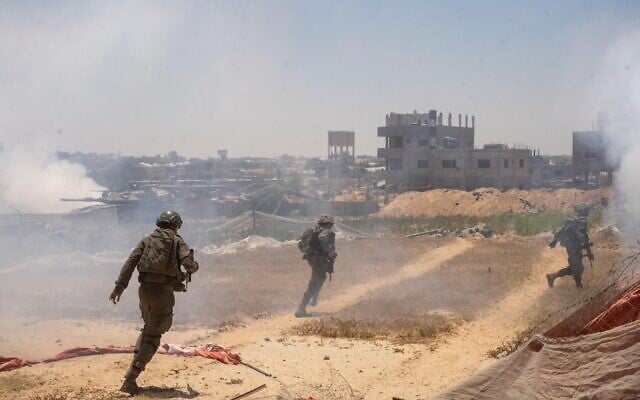
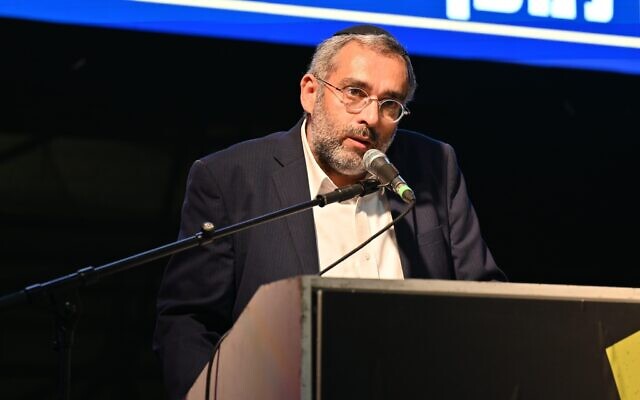
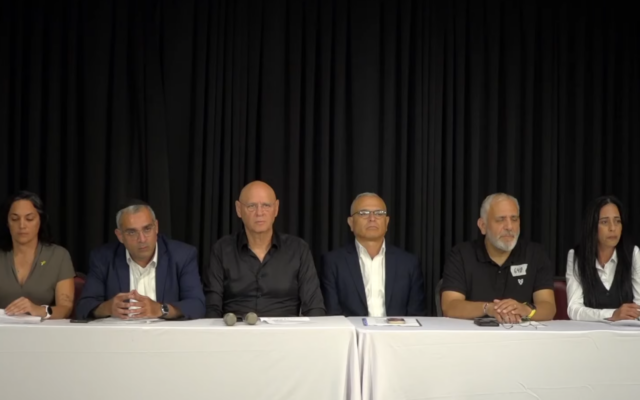
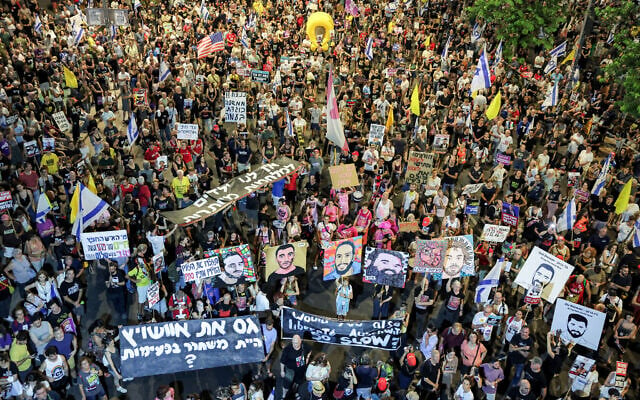




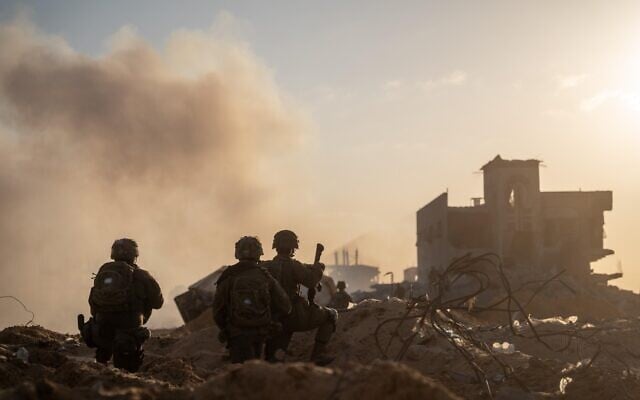
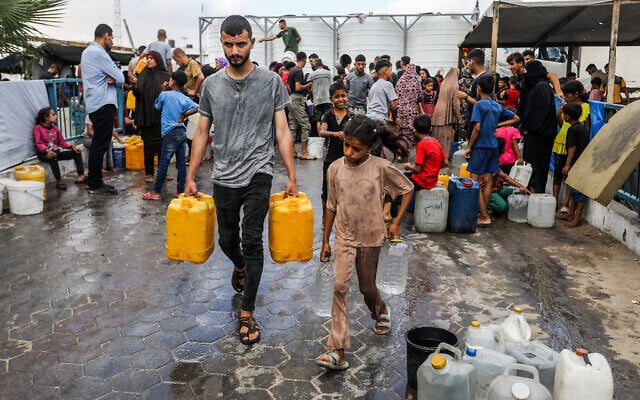



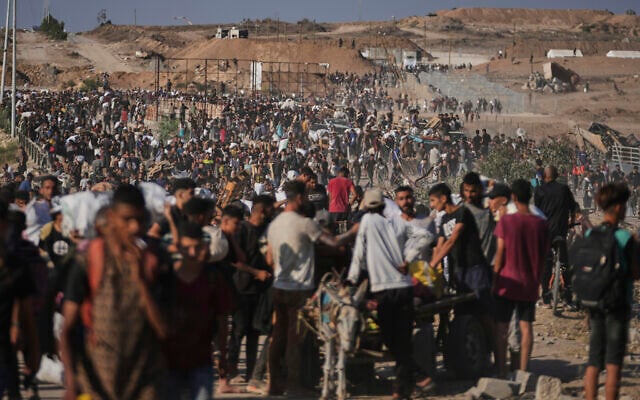

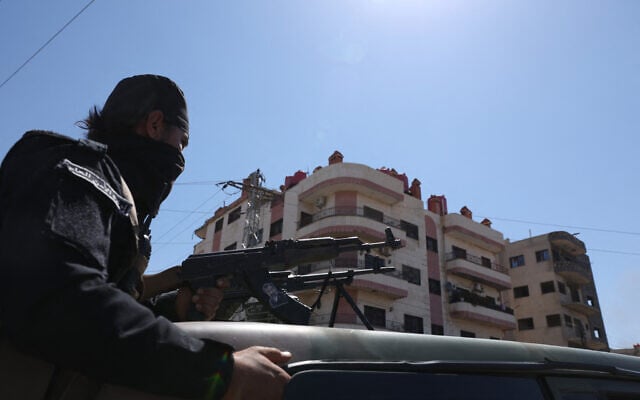
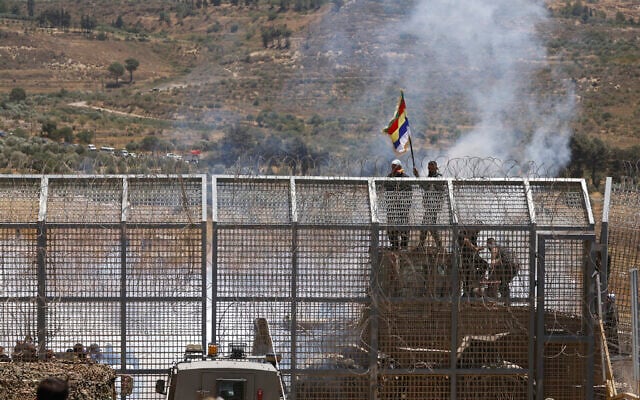
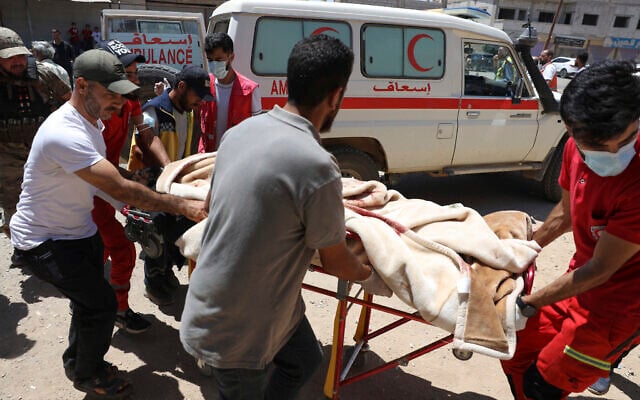
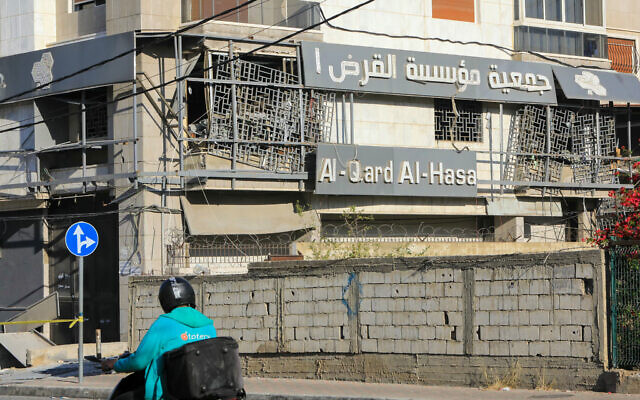
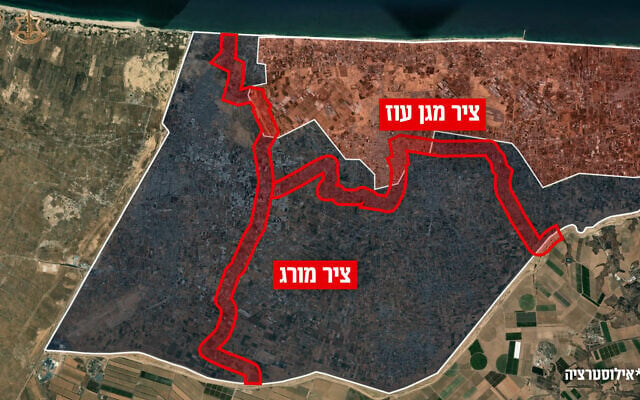
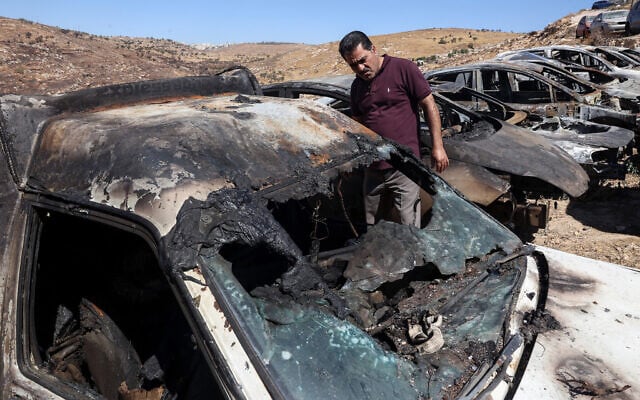







Comments
Post a Comment